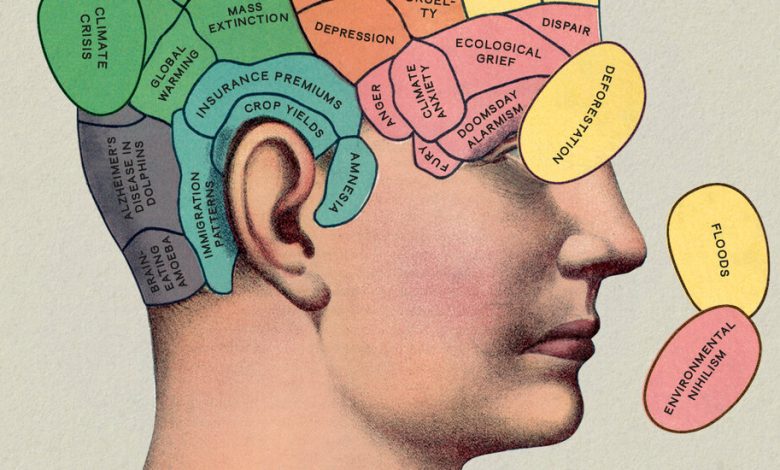Climate Change Is Making Us Paranoid, Anxious and Angry

THE WEIGHT OF NATURE: How a Changing Climate Changes Our Brains, by Clayton Page Aldern
We know, often with abject precision, what climate change is doing to our coasts, rainforests, wildfires and hurricanes; our immigration patterns, crop yields and insurance premiums. But what is it doing to our brains?
This question, for Clayton Page Aldern, is not rhetorical but bleakly literal. Aldern is a Rhodes Scholar who, in defiance of career counselors everywhere, abandoned a promising career in the field of neuroscience to become a journalist. He traces his conversion to a pair of reports showing a correlation between climate change and increased violent conflict. “It wasn’t just that a warmer world would hurt us,” writes Aldern, “it was that a warmer world would make us hurt one another.”

Most of the violence cited in those reports derives from the effect of higher temperatures on natural resources and weather disasters. A report from the Pentagon describes, for instance, how drought and reduced agricultural yields helped prime the Syrian civil war, and how Hurricane Sandy necessitated the mass mobilization of the U.S. military. But it is also true that heat makes people irritable. How much more anger — how many more shootings, road-rage accidents, sporting-event brawls, declarations of war — is stimulated by a warming of one-and-a-half degrees Celsius? How about two degrees, or three? Warmer temperatures also tend to make us more cruel, depressed and dumb.
“The Weight of Nature” observes most of the narrative conventions of advocacy writing. A set of alarming problems is introduced and bemoaned, the dramatic stakes are raised to dizzying extremes, solutions are presented, and the reader is encouraged to act. But the weight of the “Weight of Nature” falls heavily on the problems, which draw from a survey of experimental findings so terrifying that they elicit the prose equivalent of nervous laughter; many of them, as Aldern writes in reference to the prospect of global-warming-induced mass dementia, are “almost comically apocalyptic.”
The book’s exposition, drawing from a selection of recent scientific studies, reads like a demonic Harper’s “Findings” column. Naegleria fowleri, the brain-eating amoeba, has begun infecting swimmers in lakes as far north as Iowa and Minnesota, and may already be present in all fresh water; as lakes and ponds warm, writes Aldern, channeling Vincent Price, “more N. fowleri are waking up.”



